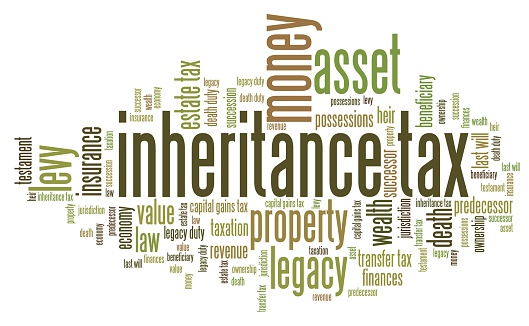Deceased estates in Scotland: death, debts and executor duties
Jessica Flowerdew and Nicola Neal, of Brodies LLP, explain the duties of executors in Scotland when distributing an estate.
 The Gazette recently launched an online service for deceased estate notices (‘notice placements’), whereby personal representatives
dealing with a deceased person’s estate in England and Wales can place a statutory
notice under section 27 of the Trustee Act 1925.
The Gazette recently launched an online service for deceased estate notices (‘notice placements’), whereby personal representatives
dealing with a deceased person’s estate in England and Wales can place a statutory
notice under section 27 of the Trustee Act 1925.
The purpose of a notice placement is to notify any creditors of the debtor’s death and invite them to intimate claims within specific timescales. The personal representatives cannot be held personally liable if a beneficiary or creditor emerges after the deceased’s estate has been distributed.
This article considers the equivalent rules and procedure in Scotland regarding executry debts, and the liability of executors (the Scottish equivalent of personal representatives) to settle these.
Executors’ liability for executry debts in Scotland
There's no procedure in place for notifying creditors of a death in Scotland. The position is as follows:
- The executor must take reasonable steps to ascertain any debts due by the estate. However, provided the executor has obtained confirmation of their position from the court (the Scottish equivalent of probate and letters of administration), their liability is restricted to the value of the deceased’s estate.
- In solvent estates, it is a well-established principle that executors should wait six months from the date of death before distributing an estate to enable potential creditors to intimate any claim.
- Where the executor distributes the estate to the beneficiaries after the six-month period, they will not be personally liable for any claims intimated thereafter, provided that the estate was distributed by the executor in good faith.
- Beneficiaries may, in theory, be liable for debts unpaid by the executor to the extent of their inheritance under the will or on intestacy. However, beneficiaries will not be liable for any debts unpaid by the executor while the estate was in his or her hands if there were sufficient funds in the estate to have paid the debt. In this instance, the executor may be found to be personally liable.
Ranking of debts in Scotland
The order of priority for the payment of debts on death follows that of bankruptcy (see s. 51 of the Bankruptcy (Scotland) Act 1985). When the estate has been ingathered, the executor must settle all of the deceased’s liabilities. The order of payment of such liabilities becomes relevant where there are insufficient funds in the deceased’s estate to meet all of the deceased’s outstanding liabilities. This order does not affect secured creditors whose rights are preferred to those of the permanent trustee in bankruptcy.
The order of priority for the payment of debts on death in Scotland is as follows:
- For insolvent estates, the outlays and remuneration of the interim trustee followed by the permanent trustee must be settled first.
- Death-bed and reasonable funeral expenses, and any expenses incurred in administering the deceased’s estate are widely known as ‘privileged debts’, and are payable before all other debts, with the exception of expenses of sequestration.
- ‘Preferred debts’ are paid next, and include contributions to occupational pension schemes and remuneration owed to the deceased debtor’s employees.
- ‘Ordinary debts’ cover all other debts that are neither secured nor otherwise mentioned in section 51.
If there is more than one debt in any one of the above listed categories (with the exception of expenses of sequestration), they are given the same priority as any of the other debts in the same category. If there are insufficient funds in the estate for each of the debts in that category to be settled, they will be abated equally.
Inheritance tax (IHT)
IHT constitutes a debt on the estate, but its ranking in the order of priority for payment of debts is unclear. IHT is payable on the net value of the estate after deduction of the deceased’s debts at the date of death, plus reasonably incurred death-bed and funeral expenses. The Stair Memorial Encyclopaedia suggests that all other debts require to be settled before IHT, and this view is generally supported. IHT is still however due six months following the date of death, and interest will accrue on the sum owed from that date.
It is important for executors dealing with the estate of deceased person in Scotland to be aware of their duties in relation to payment of the deceased’s debts. Executors should avoid making distributions from the estate until the expiry of six months from the date of death, to avoid personal liability.
Even in solvent estates, the order of priority of debts can be of particular relevance where the deceased was asset rich and cash poor. In all cases, but particularly where the deceased had complex assets and a number of debts, taking professional legal advice is crucial.
About the author
Jessica Flowerdew and Nicola Neal are senior solicitors in the personal and family team at Brodies LLP, follow @BrodiesLLP.
It is good practice for an executor to place a deceased estates notice in The Gazette to notify any creditors of the debtor’s death and invite them to intimate claims within specific timescales. Contact the Gazette customer services team to place a notice for estates in Scotland.
